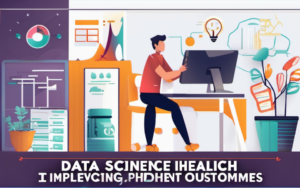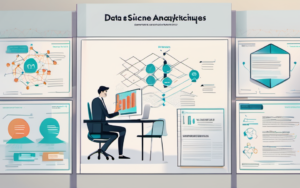Data science has exploded in popularity, becoming a highly sought-after field with lucrative career opportunities. But is the data science community inadvertently excluding individuals from non-traditional backgrounds? While the field is rapidly expanding, it’s crucial to ensure accessibility and inclusivity for everyone, regardless of their educational background or prior experience.
Is the Data Science Community Excluding Non-Traditional Backgrounds?
Introduction
The allure of data science is undeniable, attracting individuals from diverse fields, eager to unlock the power of data. However, a closer look reveals a potential barrier for those who don’t possess a traditional computer science or mathematics background. This raises a crucial question: Is the data science community excluding non-traditional backgrounds?
The Traditional Data Science Path
The traditional pathway to a data science career often involves a strong foundation in computer science, statistics, and mathematics.
Computer Science Degrees
Many employers prioritize candidates with a computer science degree, expecting proficiency in programming languages like Python and R, as well as experience in machine learning algorithms.
Statistics and Mathematics Backgrounds
Individuals with strong backgrounds in statistics and mathematics are also highly sought after in the field, as they possess the analytical skills and theoretical understanding necessary to interpret and analyze data.
Barriers for Non-Traditional Backgrounds
While a traditional background can be advantageous, it’s essential to acknowledge the potential barriers it creates for individuals from non-traditional backgrounds.
Lack of Formal Education
Individuals without a formal education in computer science or related fields may face challenges in acquiring the necessary technical skills. This can limit their access to entry-level positions and make it harder to break into the field.
Limited Networking Opportunities
Non-traditional backgrounds often lack the same level of networking opportunities as those with computer science degrees. This can make it harder to connect with industry professionals and gain insights into career paths.
Unfamiliarity with Technical Skills
The technical demands of data science can be daunting for those without prior programming experience. It can be challenging to learn new languages and tools, especially without access to formal training or mentorship.
The Importance of Diversity in Data Science
Diversity in the data science community is essential for progress and innovation.
Broader Perspectives and Insights
Individuals from diverse backgrounds bring unique perspectives and experiences to the field, enriching problem-solving approaches and leading to more comprehensive and impactful solutions.
Addressing Bias in Data and Algorithms
Diverse teams are better equipped to identify and mitigate bias in data and algorithms, ensuring fairness and ethical considerations are prioritized.
Increased Innovation and Creativity
A wider range of backgrounds fosters a more creative and innovative environment, leading to breakthroughs in data science techniques and applications.
Bridging the Gap
Fortunately, initiatives are emerging to bridge the gap and make data science more accessible to individuals from non-traditional backgrounds.
Mentorship Programs
Mentorship programs connect experienced data scientists with individuals from diverse backgrounds, providing guidance, support, and opportunities for skill development.
Accessible Learning Resources
Online platforms and resources are making data science education more accessible, offering courses and tutorials designed for non-programmers and those with limited technical experience. [link to online learning resources]
Industry Collaboration
Companies are partnering with educational institutions and organizations to create pathways for individuals from non-traditional backgrounds to enter the data science field.
Conclusion
The future of data science hinges on inclusivity and accessibility. By removing barriers and creating opportunities for individuals from diverse backgrounds, we can unlock the full potential of this transformative field.
The data science community has a responsibility to foster an environment where everyone feels welcome and empowered to contribute. By embracing diversity and providing support for non-traditional backgrounds, we can create a more equitable and innovative future for data science.




